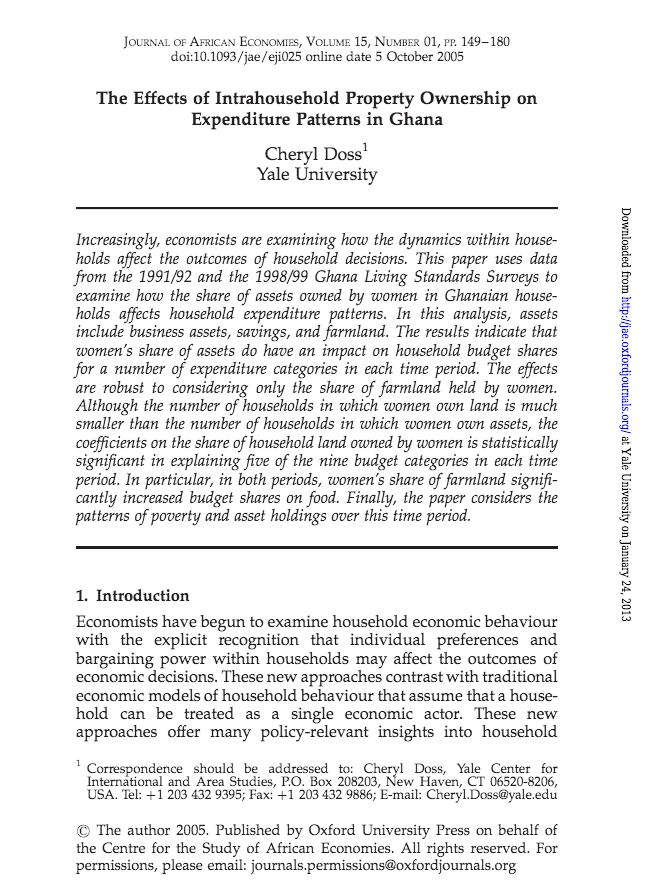Resource information
Increasingly, economists are examining how the dynamics within households affect the outcomes of household decisions. This paper uses data from the 1991/92 and the 1998/99 Ghana Living Standards Surveys to examine how the share of assets owned by women in Ghanaian households affects household expenditure patterns. In this analysis, assets include business assets, savings, and farmland. The results indicate that women’s share of assets do have an impact on household budget shares for a number of expenditure categories in each time period. The effects are robust to considering only the share of farmland held by women. Although the number of households in which women own land is much smaller than the number of households in which women own assets, the coefficients on the share of household land owned by women is statistically significant in explaining five of the nine budget categories in each time period. In particular, in both periods, women’s share of farmland signifi- cantly increased budget shares on food. Finally, the paper considers the patterns of poverty and asset holdings over this time period.

